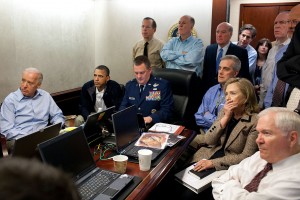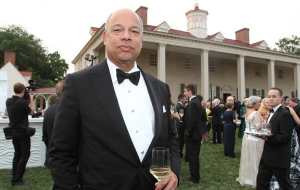Penetrated: Today’s Senate Intelligence Committee Hearing on Russian Interference in the 2016 U.S. Elections
If you didn’t catch the Senate Intelligence Committee hearing on Russian influence on 2016 U.S. election on live stream, you should try to catch a replay online. I missed the first panel but caught the second when University of Michigan Prof. J. Alex Halderman began his testimony with his opening statement.
The same Halderman who questioned the 2016 election could have been hacked based on his expertise.
The same Halderman who hacked a voting machine to play Pac Man.
When asked if it was possible Russia could change votes, Halderman told the SIC that he and a team of students demonstrated they were able to hack DC’s voting system, change votes, and do so undetected in under 48 hours. Conveniently, Fox News interviewed Halderman last September; Halderman explained the DC hack demonstration at that time (see embedded video); the interview fit well with Trump’s months-long narrative that the election was ‘rigged’.
If you aren’t at least mildly panicked after watching the second panel’s testimony and reading Halderman’s statement, you’re asleep or dead, or you just plain don’t care about the U.S.’ democratic system.
Contrast and compare this Senate hearing to the House Intelligence Committee’s hearing with former DHS Secretary Jeh Johnson as a witness. Johnson sent out numerous messages last year expressing his concerns about election integrity, but after listening to the second Senate panel, Johnson should have been hair-on-fire (it’s figure of speech, go with it). But the Obama administration erred out of some twisted sense of heightened sensibility about appropriateness (which would have been better suited to its policies on drone use and domestic surveillance). The excess of caution feels more like foot dragging when viewed through the lens of time and Johnson’s testimony.
Early in the hearing, Johnson as well as DHS witnesses Jeanette Manfra and Samuel Liles said there was no evidence votes were changed. It’s important to note, though, that Johnson later clarifies in a round about way there was no way to be certain of hacking at that time (about 1:36:00-1:41:00 in hearing). I find it incredibly annoying Johnson didn’t simply defer to information security experts about the possibility there may never be evidence even if there were hacks; it’s simply not within in his skill set or experience then or now to say with absolute certainty based on forensic audit there was no evidence of votes changed. Gathering that evidence never happened because federal and state laws do not provide adequately for standardized full forensic audits before, during, or after an election.
Halderman’s SIC testimony today, in contrast, makes it clear our election system was highly vulnerable in many different ways last November.
Based on the additional testimony of a representative of National Association of State Election Directors, the President-Elect of National Association of Secretaries of State (NASS) & Secretary of State, Executive Director of Illinois State Board of Elections Illinois — whose combined testimony revealed lapses in communication between federal, state, and local government combined with gaps in information security education — the election system remains as vulnerable today as it was last autumn.
Nothing in either of these two hearings changed the fact we’ve been penetrated somewhere between 21 and 39 times. Was it good for you?




